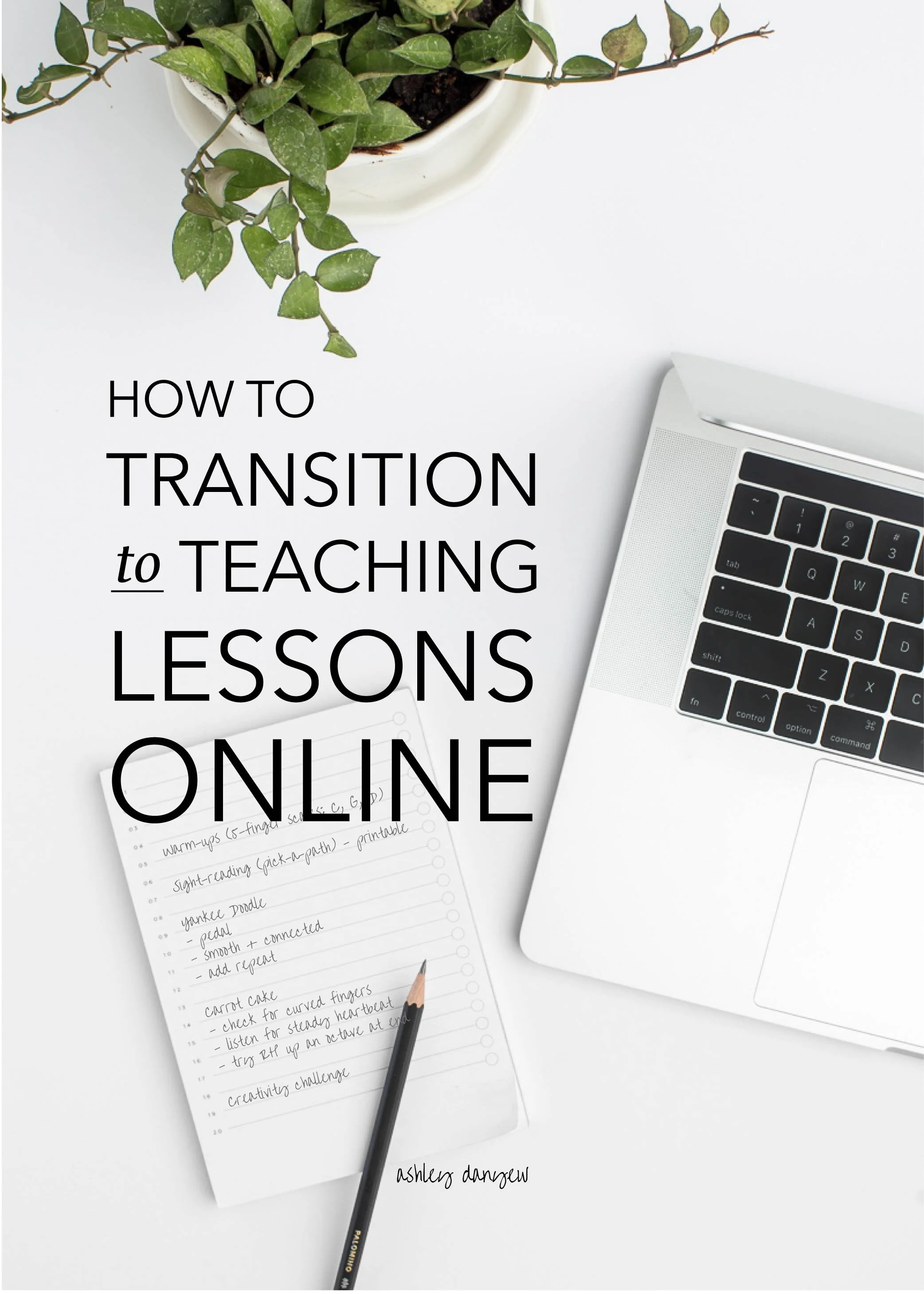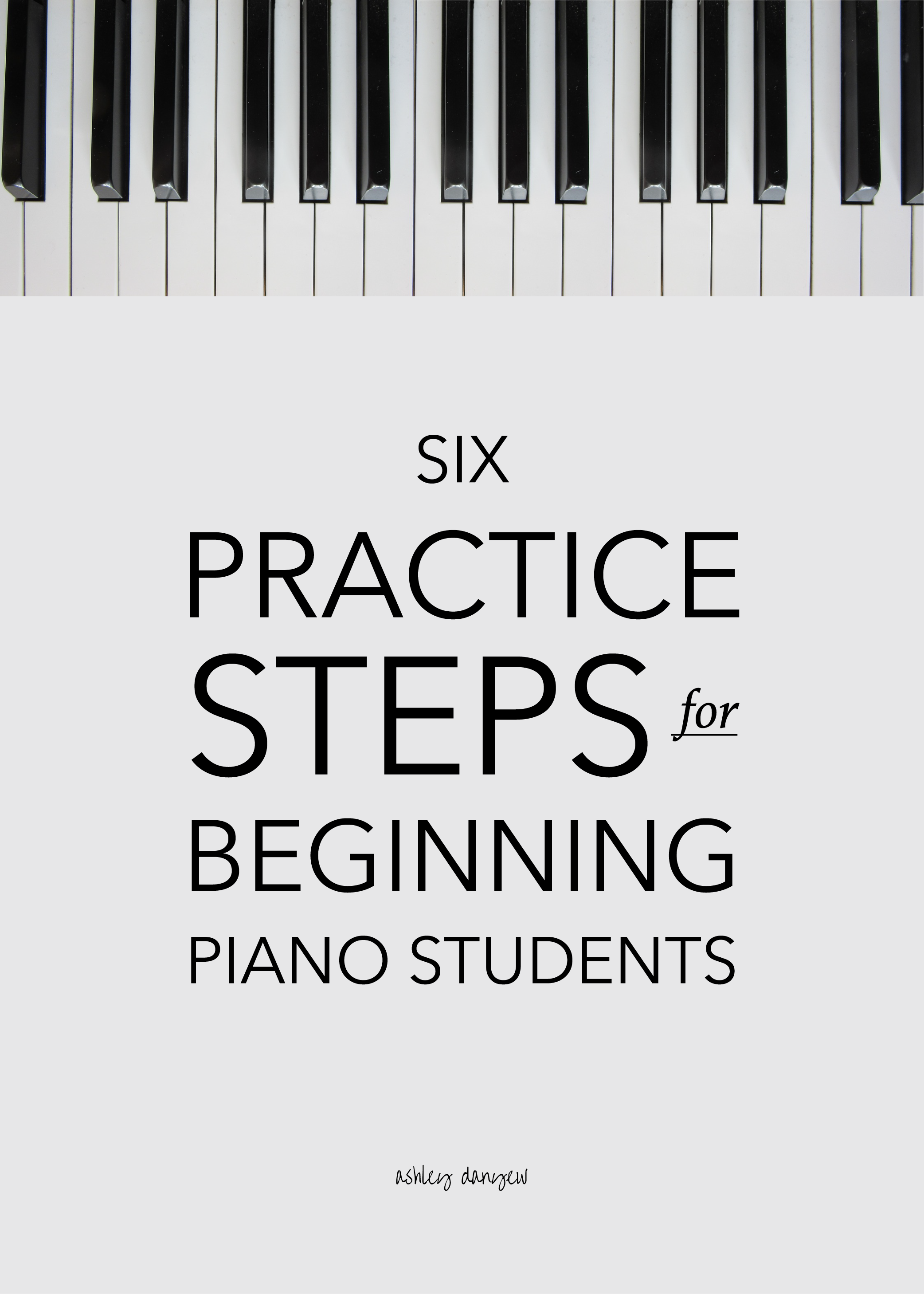Supplemental collections are a great way to 1) incorporate a variety of musical styles into their repertoire plan, 2) expose your students to new voices (especially those who are underrepresented), and 3) foster motivation. Here are 15 of my favorite collections for elementary piano students.
How to Transition to Teaching Lessons Online (Due to COVID-19)
We’re living in unprecedented times.
With the recent worldwide outbreak of COVID-19, more and more schools and studios are choosing to close and transition to remote learning.
Maybe you’re like me in thinking that some subjects lend themselves well to being taught online: history, language, math. But music? How do you teaching piano to a 1st grader online? How do you teach choir or band? How do you teach group lessons?
This week, numerous music educators have put together resources, kits, and teaching guides to help others transition to online learning, learn about tools that are available, and get ideas. There are Facebook groups and webinars, blog posts and Google Docs summarizing all the music-related tech tools that are offering special discounts right now.
Here in Rochester, NY, schools are closed and moving online until further notice.
As such, I’m transitioning my studio to online learning. Today, I want to share what that looks like, including:
The notes I’m sending home to parents
Three models for online education I’m offering to all my students (K-10th grade)
Steps I’m taking to plan and prepare for this change
Resources and printables I’m pulling together for the next few weeks
Tools I’m using on the tech side of things
My best recommendations for studio teachers in this situation
10 Ways to Help Your Child Practice
This is a letter to all the parents and guardians and babysitters and older siblings and neighbors and friends who support young musicians: those who encourage the pursuit of music, tote children and books and accessories back and forth to lessons each week, and help with practicing at home.
Dear parents + guardians:
Thank you for supporting your child’s musical pursuits. You play a crucial role in your child’s success in learning to play an instrument. Even if you don't play the piano yourself, your support and guidance at home during the week is extremely important to their music-learning process.
How to Create a Repertoire Plan Using the RCM Piano Syllabus
A few summers ago, I attended the National Conference on Keyboard Pedagogy (NCKP) for the first time (read my recaps here, here, and here).
In addition to a wealth of new teaching ideas, I learned about new methods and curriculum materials, some of which I’ve been using in my teaching ever since.
Perhaps the most influential and valuable resource I discovered at NCKP was the Royal Conservatory of Music (RCM—Canadian division) and Music Development Program (MDP - US division).
Founded with a commitment to developing strong musicianship skills from the very beginning, the program includes level-by-level guides to repertoire, technique, and musicianship skills (plus supplemental materials for music history and theory) for a variety of different instruments.
Six Practice Steps for Beginning Piano Students
I love working with young, beginning piano students.
Our lessons are always full of imagination and creative exploration—their eyes wide with excitement and wonder when they make a connection or discover something new—and I always learn so much about myself as a teacher as we walk those first steps in their musical journey together.
That being said, we all know that when learning a new instrument, productive practice time at home is essential to learning and developing as a musician.
Most of us see our beginning students for only 30 minutes a week, so time spent at the keyboard in between lessons can really make or break a student’s progress and the fulfillment they find in music-making.
Three Things I'm Doing Differently in My Piano Studio This Year
It's been a while since I've written anything about private teaching here. This is a big part of what I do during the week, even though I don't talk about it much here, and I know many of you teach privately, as well, in addition to the other things you do.
I teach private lessons four days a week at a private school as part of their extracurricular and after-school programming. At the beginning of this year, I shared eight ways to continue developing your teaching skills this year.
8 Valuable Resources for Music Teachers
You can never have too many teaching resources, right?
It seems I'm always looking for a piece of sheet music for this student or a fun concept-based game for that student. I'm also continuously searching for ways to streamline the business side of my teaching with helpful studio management tools, bookkeeping support, and email shortcuts.
Whether you're a studio teacher, K-12 music teacher, or children's choir director, I hope you find at least one thing on this list that's helpful to you!
Here are eight of my favorite resources for music teachers:
Wave Accounting
This all-in-one online accounting system that features free (unlimited) invoicing, ability to accept credit card payments, automatic billing and reminders, accounting support, and more. Wave is the perfect small business tool!
How to Build and Run a Successful Piano Studio
On the surface, it might not look like much work, but running a successful private studio means running a small business and there's lots of behind-the-scenes work that happens in between those weekly 30-minute lessons.
Whether you're just getting started, looking to build a studio in a new city, or searching for ways to streamline your process and help the business side of your studio run more efficiently, this post has something for everyone.
Today, I'm sharing ten tips and tricks for building and running a successful piano studio (many of these suggestions are applicable for other music studios, as well!), including ideas and helpful resources, insight into how I run my studio, and a few things I've learned along the way.
Why You Should Have Consultations with Prospective Students
Last year, I received an email from a piano teacher asking about initial consultations and interviews. What do you do? What questions do you ask? How long should it be? What materials do you give them? Great questions! Here are some of the reasons I offer consultations to prospective families (and why you should, too!):
Why Are Consultations Important?
1. They give you an opportunity to meet prospective students (and their parents) face-to-face before either of you commit to lessons.
2. For students who are transferring from another teacher, it's important to see what music they're currently working on, assess what they know, and determine where you want to begin in your first lesson.
My Go-To Plan for First Piano Lessons
Where should we begin?
It's the age-old question we ask ourselves when we sit down with a new (beginning) student for the first time. What should we talk about first? Hand position? Finger numbers? Letter names? Where's Middle C?
I like to get the student playing as quickly as possible. We explore high sounds and low sounds and sounds in the middle, black keys and white keys and the patterns they make, and rhythm patterns based on our heartbeat. We imitate, improvise, and create.
The first lesson is all about experimenting with the instrument and exploring sound. Here is my go-to lesson plan:
















